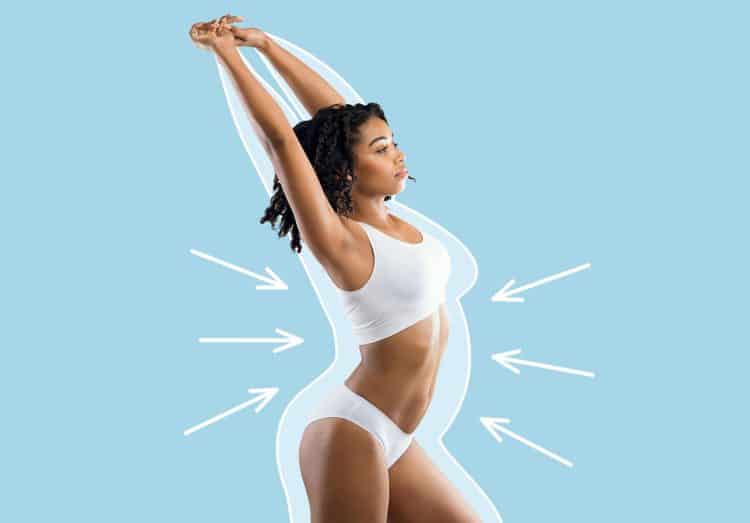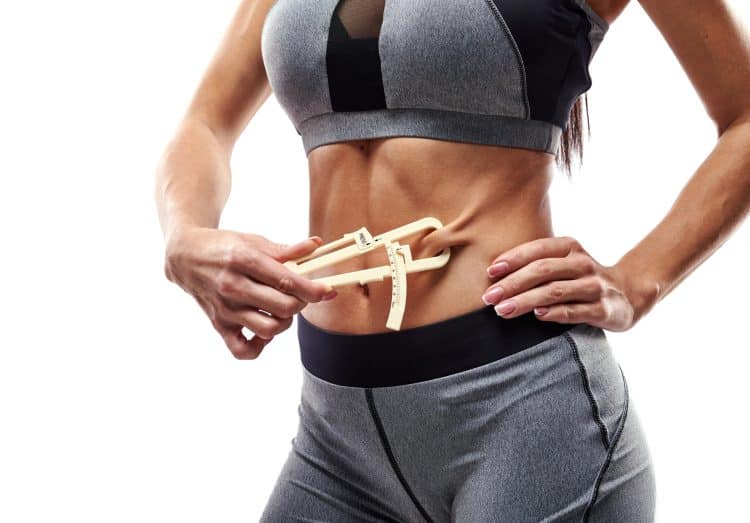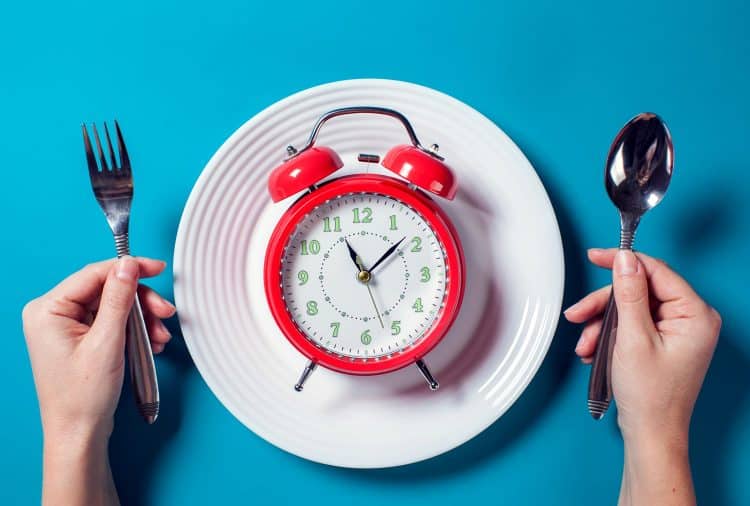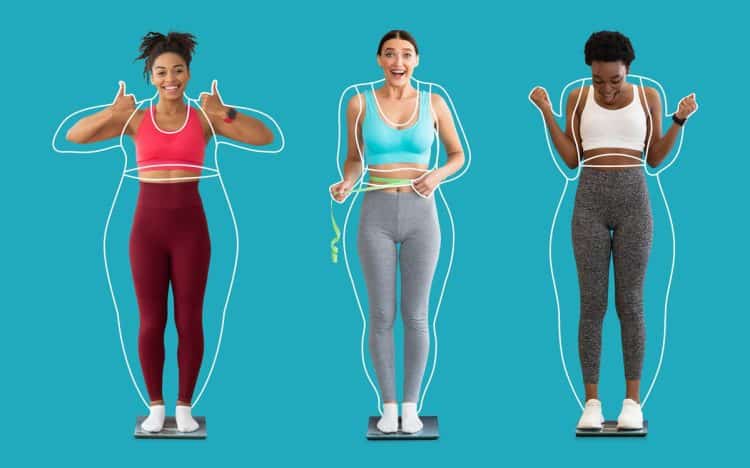Weight loss can result from either fat or muscle mass loss. The former is desirable, but the latter is not. While “fat loss” and “weight loss” are often used interchangeably, they mean different things.
Weight loss can be noticed on a weighing scale, and it can be due to loss of fat, muscle mass, water, glycogen, or bone density. Whether you are shedding overall weight or losing fat holds significance for your fitness objectives. If you weigh the same as before but experience looser fitting clothes, it’s a sign of fat loss.
Weight loss does not always lead to a shredded physique. Conversely, it is possible to get a ripped, toned, and muscular body without experiencing drastic body weight loss. This process is known as body recomposition. Two people can weigh the same but have different body fat and muscle compositions.
For better overall health, you have to concentrate on fat loss. Having the ideal body fat percentage lessens the risk of diseases like diabetes, strokes, and heart disease.
This article delves into weight loss compared to fat loss and gives you the lowdown on the reasons behind it, what you can do to cut down on fat stores, and how to change your body’s composition healthily and holistically.
What is Weight Loss?

In the simplest terms, weight loss means that your body weighs less. It could be due to loss of fat, muscle mass, water, or bone density. Each of these factors impacts your body uniquely.
When you lose fat, you appear more toned and have improved muscle definition. It will lead to better-fitting clothes and better metabolic health.
Loss of muscle will lead to a decrease in metabolic health. You will find it harder to maintain a steady weight and experience weakness, increasing your risk of injury.
Water or glycogen loss is a temporary thing. Your water weight changes throughout the day as your body looks to maintain equilibrium. If you have inadequate glycogen stores, you will experience a drop in endurance and find it difficult to exercise.
Glycogen is a kind of fuel stored in the muscles and the liver. When you limit your calories, the glycogen is used by your body to produce energy with an accompanying release of water (3 grams of water for 1 gram of glycogen) [1]. However, when you snack, and the glycogen stores are refilled, you regain the lost weight.
Bone mass loss will lead to weight loss but is dangerous. Losing bone density increases your risk of osteoporosis, with a danger of getting injured from falls in old age.
What is Fat Loss?

When you shed body fat, it is known as fat loss. Fat loss can be of three types. One is the loss of subcutaneous fat or the fat under the skin. Then, there is visceral fat loss, which is present in the abdomen and around the vital organs. Lastly, we have intramuscular fat, which is the fat that is present throughout the muscles.
Fat loss could or could not result in weight loss, and this hinges on several factors. As an example, you may be undergoing strength training while you lose body fat. In this case, your body weight might remain unchanged or increase due to muscle gain.
If you want to figure out whether you are losing muscle, you would need to use DEXA scans, full body BIA, or hydrostatic weighing, all of which are expensive and hard to come by. However, you could take anthropometric body measurements using a tape measure to record your waist, hip, chest, arm, and leg circumferences. You can also take photographs of your physique to assess your progress. These methods are not accurate, but they do give you a fair idea of where you are going.
How Do I Lose Fat and Gain Muscle?
Irrespective of your fitness goals, you should focus on maintaining and increasing your muscle mass and bone density. Losing muscle will lead to a slow metabolism, fatigue, and increased injury risk. [2]
In contrast, muscle mass gain paves the way for benefits like regulating blood sugar levels, maintaining healthy fat levels, controlling inflammation, and reducing the risk of chronic diseases like diabetes, kidney disease, and heart disease. [3][4][5]
The more muscle you have, the more calories you burn from different activities and even at rest. [6]
Listed below are helpful tips to gain muscle and lose fat simultaneously.
Intermittent Fasting
Intermittent fasting has emerged as a popular and effective diet trend that alternates between fasting and eating periods, and it is great for losing fat and gaining muscle. [7][8]
There are many different intermittent fasting schedules for beginners, like 16/8 fasting, 18/6 fasting, and 5/2 fasting. There are intermittent fasting schedules for both rank beginners and people on a more advanced level.
Experienced individuals may try advanced fasting schedules like alternate-day fasting, monk fasting, water fasting, or eat-stop-eat fasting.

Benefits of Intermittent Fasting
As we mentioned earlier, intermittent fasting is not a fad. In fact, intermittent fasting has become one of the most searched diets on Google. Everyone wants to cash in on the benefits of intermittent fasting (or at least would like to). Here are some top medical benefits associated with intermittent fasting:
Weight loss
Intermittent fasting is an effective way to shed the stubborn belly fat. Most remarkably, you can achieve this without cutting calories. But keep in mind that your diet should have healthy and organic food.
Reduces Insulin Resistance
Your body’s resistance to insulin can decrease with intermittent fasting. Blood sugar levels can be lowered by 3-6%, and fasting insulin levels can be reduced by 20-30% if you practice intermittent fasting. Thus, it is an effective deterrent to type 2 diabetes. Also, this is why people who have diabetes need a doctor’s permission before they start with IF.
Reduction in Inflammation
Intermittent fasting studies have shown a reduction in inflammation markers. Because inflammation leads to several chronic diseases, intermittent fasting will help you manage these diseases better.
Heart Health Improvement
Risk factors for heart disease are inflammation, blood triglycerides, LDL cholesterol, blood sugar, and insulin resistance. Studies have found that intermittent fasting can help reduce these markers, thereby improving heart health.
Brain Health Improvement
The hormone BDNF (Brain Derived Neurotrophic Factor) increases as we practice intermittent fasting. BDNF helps in the formation and growth of new brain cells. Studies have pointed out that IF can also prevent Alzheimer’s.
Anti-Aging Properties
In a study, the lifespan of fasting rats improved by at least 35%. This happens because of a process known as autophagy, where the cells and tissues of our bodies repair and regenerate. So, intermittent fasting can protect us from anti-aging issues.
Possible Cancer Prevention
It is much too early to say this for certain, but intermittent fasting has been studied in cancerous rats, and the results were encouraging. If we can crack the cancer puzzle, mankind will have done itself a great favor.
Calorie Restriction
To lose weight, you must expend more calories than you consume. However, if your calorie deficit is too big, your body is deprived of sufficient fuel for daily activities. This will make it difficult for you to exercise, increase your food cravings, and lead to a slower metabolism. Hence, your calorie reduction should be modest.
Increase Your Protein Intake
Increasing your protein intake will help you preserve and build muscle, activate your metabolism, reduce food cravings, and lead to body fat loss. However, protein cannot achieve this on its own. You must ensure adequate carbs and healthy fat intake and run a calorie deficit.
Weight Training
To burn body fat, you must burn calories. Weight training is one of the most effective ways to burn calories. It helps burn calories while exercising and also after your workout.
Strength training helps build muscle mass, and as mentioned earlier, more muscle means more calorie expenditure and a faster and more efficient metabolism. Now, you must remember that while maintaining and increasing muscle is integral to fat loss, it could mess with overall weight loss.
If you lose fat while keeping your muscle mass the same, your weight could drop. If you burn fat and gain muscle, your weight could increase. As a matter of fact, if you exercise more, the density of your bones will increase, contributing to weight gain. But this is healthy weight gain. However, note that muscle gain for a beginner is not instantaneous; it takes time.

Include Cardio in Your Fitness Routine
Cardio plays a vital role in fat loss and muscle gain by burning fat and improving your metabolism. Cardio, combined with strength training and adequate nutrition, can help with body recomposition [9]. Switch between running, cycling, walking, and rowing to keep your workouts exciting. However, you should not go overboard with cardio, as it could cause muscle loss, increased food cravings, and energy loss.
Weight and Body Composition
Your body weight comprises two components — fat mass and fat-free mass. Fat mass includes subcutaneous and visceral fat, whereas fat-free mass comprises water, bones, organs, and muscles.
Muscle is more dense than fat. Hence, a pound of muscle occupies less space than a pound of fat. This indicates that a person with more muscle than fat will look different than a person with more fat and less muscle, though they might weigh the same.
Body weight involves various factors, and not all are within your control. Some factors, such as genetics, metabolism, and certain medical conditions, play a significant role in determining your body weight and composition. Just remember that at the end of the day, a healthy body composition of more muscle and less fat does not always mean lower body weight.
Can I Exercise While Fasting?
If you are a healthy individual, it is perfectly okay for you to exercise while fasting, especially if you aim to lose fat. However, some people must exercise caution, like hypertension, coronary artery disease, or diabetes patients. When you fast, any kind of physical activity will appear strenuous. Hence, watch your heart rate if you have cardiac issues.
People with diabetes have low blood sugar and need frequent meals to sustain low blood sugar levels. This medical condition is known as hypoglycemia and can cause symptoms like sweating and increased heartbeat. Do not exercise in a fasted state if you have hypoglycemia.
Those who take beta blockers are at risk if they exercise in a fasted state. Their heart rate will struggle to increase, and they may feel lightheaded after exercising.
How to Get The Best From My Intermittent Fasting Schedule?
Here are some valuable, tried, and tested suggestions to get the maximum out of intermittent fasting and fat loss routine. Always start slow because it can be easy to get carried away initially. Choose the IF method that suits you the best, and progress linearly.
You should always know your why. Are you fasting because you want to look and feel good, or is it because everyone in your social circle is doing it?
Try sleeping on an empty stomach, as it improves digestion. A delayed breakfast ensures you stay fuelled for the entire day and keeps you satiated. At the same time, you need to have a lot of water, preferably a gallon a day, besides other beverages like tea, coffee, and zero-sugar drinks.
You should be in the driver’s seat while fasting. Your IF timings will depend on when you get off work, your particular energy requirements, and your long-term health targets. The worst thing you can do is to compare yourself with friends and family.
Ginger tea is a neat little pick me up when you are intermittent fasting and experience cravings. Ginger tea suppresses food cravings and can help take you through the remainder of your fast.
FAQs
Is it possible to lose fat without losing body weight?
Yes, you can lose body fat without losing body weight. This is achieved by muscle mass gain through adequate exercises and a healthy diet.
What takes longer, fat loss or weight loss?
Some forms of weight loss, like water weight loss, are pretty fast. If you want to lose fat, it will come only with a consistent calorie deficit and regular exercise.
Which part of the body is the most stubborn when it comes to fat loss?
It might vary from person to person, but generally, the most stubborn body part for fat loss is the belly, followed by the thighs and the arms. This cannot be controlled, so you should relax and let the body do its thing.
How long will it take before weight loss is noticeable?
The time taken for weight loss will depend on what you are doing to achieve it and how your body responds. It could be anywhere from a few days to a few weeks.
Why do I appear slimmer even though I have gained weight?
It is possible to look thinner but weigh more if you have lost body fat and gained muscle. This is because 1 pound of muscle will occupy less space than 1 pound of fat.
Conclusion
Weight loss and fat loss are not the same thing. It is possible to lose fat but weigh the same or more as muscle is denser than fat and takes up less space.
You can lose fat through intermittent fasting, regular weight training, cardio, running a calorie deficit, and increasing your protein intake. Whatever you do, ensure that you do it correctly and that it is compatible with your lifestyle.
You must look past the bathroom scale to define weight loss success. Set clear objectives. For example, you might want to feel more confident and improve your mobility, aesthetics, or energy levels. Measure your success based on these parameters, and you won’t go wrong.
References
- Stenholm, S., Harris, T. B., Rantanen, T., Visser, M., Kritchevsky, S. B., & Ferrucci, L. (n.d.). Sarcopenic obesity – definition, etiology and consequences. PubMed Central (PMC).
- Willoughby, D., Hewlings, S., & Kalman, D. (2018, December 3). Body Composition Changes in Weight Loss: Strategies and Supplementation for Maintaining Lean Body Mass, a Brief Review. PubMed Central (PMC).
- Zeng, Q., Dong, S. Y., Sun, X. N., Xie, J., & Cui, Y. (2012, April 20). Percent body fat is a better predictor of cardiovascular risk factors than body mass index. PubMed Central (PMC).
- High muscle-to-fat ratio is associated with lower risk of chronic kidney disease development – PubMed. (2020, June 1). PubMed.
- Chen, Y. Y., Fang, W. H., Wang, C. C., Kao, T. W., Yang, H. F., Wu, C. J., Sun, Y. S., Wang, Y. C., & Chen, W. L. (2019, April 9). Fat-to-muscle ratio is a useful index for cardiometabolic risks: A population-based observational study. PubMed Central (PMC).
- McPherron, A. C., Guo, T., Bond, N. D., & Gavrilova, O. (2013, April 1). Increasing muscle mass to improve metabolism. PubMed Central (PMC).
- Effects of intermittent fasting on body composition and clinical health markers in humans – PubMed. (2015, October 1). PubMed.
- Intermittent versus daily calorie restriction: which diet regimen is more effective for weight loss? – PubMed. (2011, July 1). PubMed.
- Sardeli, A. V., Komatsu, T. R., Mori, M. A., Gáspari, A. F., & T. Chacon-Mikahil, M. P. (2018, March 29). Resistance Training Prevents Muscle Loss Induced by Caloric Restriction in Obese Elderly Individuals: A Systematic Review and Meta-Analysis. PubMed Central (PMC).


